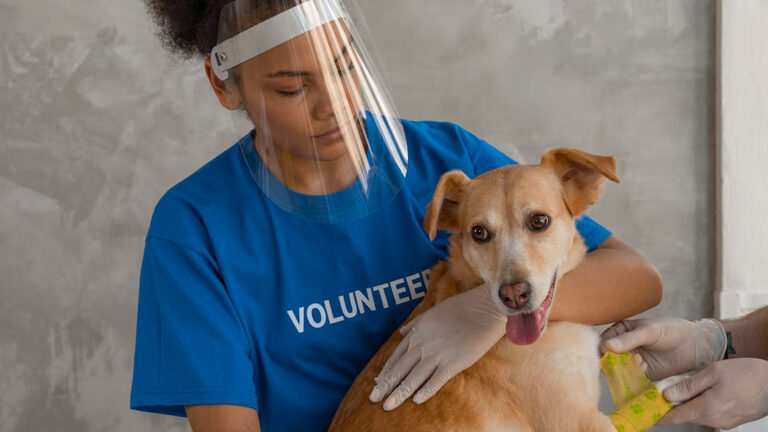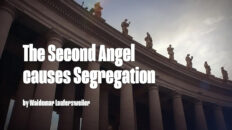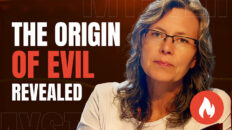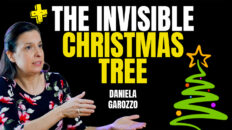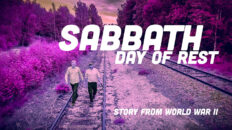Those who love animals can understand God better. By Kai Mester
Reading time: 12 minutes
“For God will bring all works into judgment, everything that is hidden, whether good or evil” (Ecclesiastes 12:14) – all works, including what we do to animals, as the well-known story of Balaam and his donkey shows.
Balaam and the donkey
It was almost a small investigative judgment when the angel of the LORD confronted the prophet after he had beaten the donkey several times and even felt like killing her with a sword. “Why have you now beaten your donkey three times?” the angel asked, making it clear to him that he had almost lost his own life as a result (Numbers 22:32-33). A parable? In a way, yes. After all, isn’t humanity almost killing itself through its cruelty towards animals? In any case, the ecological and health consequences of meat consumption are worrying.
God’s mercy on the animals
The Bible has a clear position on the correct treatment of animals: “The righteous have mercy on their animals, but the wicked are heartless.” (Proverbs 12:10 LU/NL) For the great example of the righteous is God himself, the greatest of the righteous: “O LORD God of Israel, you are righteous.” (Ezra 9:15) “The righteous man has mercy on his animals.” As the Creator of all animals, all animals truly belong to him: “All the beasts of the forest belong to me, the cattle on a thousand mountains.” (Psalm 50:10) This is also what Jesus said about his father: “Are not two sparrows sold for a penny? Yet not one of them falls to the ground without your Father” (Matthew 10:29), and the psalmist confirms: “You, O LORD, save people and animals.” (Psalm 36:7)
A rescue ark for humans and animals
Two examples of how God saves people and animals are the Flood and Nineveh. The animals are mentioned specifically there. “Bring a pair of each kind of animal – a male and a female – into the ship, so that they may survive the flood with you.” (Genesis 6:19) Unfortunately, it was only by taking an additional six pairs of pure animals with them that humans were able to survive after the flood. As the first recorded owner of a migratory zoo, Noah followed the instruction “to preserve offspring [of animals] alive throughout the earth” (Genesis 7:3). Verses 8 and 9 then describe the entry of the animals into the ark, and again from verses 14 to 16: “All these went to Noah into the ark in pairs, of all flesh in which was the breath of life.” (verse 15) The end of the Flood is then explained by the fact that God remembered Noah and “all the wild animals and all the livestock that were with him in the ark” (Genesis 8:1) and the waters subsided again. In verse 17, he commands Noah to take the animals out of the ark and this is then described in verse 19. The covenant that God then established with this world was made with mankind and “with every living creature among you, with birds, with cattle and with every beast of the earth among you, with everything that came out of the ark, whatever beasts there are on the earth.” (Genesis 9:10) The rainbow serves as a sign of the covenant between God, man, animal and earth. The chapter mentions the animals three more times (verses 15, 16, 17), as if the community of fate between humans, animals and the environment on the one hand and God’s will to save on the other could not be emphasized enough. Yes, a community of fate in a double sense: after all, most of the animals perished with the cruel humans in the Flood.
Community of destiny in Nineveh
Humans and animals had already lived in close communion in the Garden of Eden. But sin dragged the animals down with it: Through sacrifice and slaughter and sexual abuse, man made use of the animals. Whoever sins lives at the expense of others, as God already made clear to man when he himself had the first animal slaughtered to give people clothes made of skins. In Sodom, Lot’s herds of cattle and probably many other animals perished in the fire. But in Nineveh they were allowed to survive. Repentance was the key. A repentance that was expressed in fasting. Isn’t vegetarianism also a kind of fasting as repentance for what we humans do to animals? A worthwhile thought. In any case, when Nineveh repented, the king commanded that the animals also fast and be clothed in sackcloth. This is why God said in the last verse of the book of Jonah: “And should not Nineveh, a city so great, in which there are more than a hundred and twenty thousand people who do not know which way is right or left, and many beasts?” (Jonah 4:11)
Waiting for the new earth
It is not only humans who suffer from pain, illness and death. No, “we know that the whole creation groans and travails until this moment. And not only they, but we also … groan … longing for … the redemption of our body.” (Romans 8:22-23) The Bible describes the New Jerusalem as a great ark that will protect the “elect” from the fiery inferno that is to cleanse the earth (Revelation 20:9). To this end, they will be gathered beforehand “from the four winds, from one end of heaven to the other” (Matthew 24:31). As with the ark, all those who seek out this protective place will be taken in. What if we were then surprised to find that we are brought to the New Jerusalem with many, even resurrected animals? I wouldn’t be surprised, but I wouldn’t want to prophesy it either. The only thing that is certain is that the Bible mentions the following animals, among others, as inhabitants of the earth cleansed of sin and death, on which we will settle after the fire has gone out: Lion, ox, horse, mule and dromedary (Isaiah 65:25; 66:20).
Jesus and the animals
When Jesus, the righteous one (1 John 2:1), came into this world, he was first laid in a manger. Later, he spoke of the compassion that people should have for animals when they fell into a pit on the Sabbath (Matthew 12:11); for his entry into Jerusalem, he had a donkey and her colt untied in order to witness this great event (Matthew 21:7), and at the Passover meal he instituted a rite that from then on made the slaughter of animals superfluous. For he was the true sacrificial lamb that was slaughtered on Golgotha the following day.
Animal rights in the Torah
Animal rights were already laid down in God’s law at Sinai: “If you meet your enemy’s ox or donkey that has gone astray, you shall bring them back to him. If you see your enemy’s donkey lying under its load, do not abandon it, but help the animal up with it.” (Exodus 23:4-5) “Six days you shall do your work, but on the seventh day you shall rest, so that your ox and your donkey may rest.” (Exodus 23:12) “You shall not do this [castration] to animals in your land.” (Leviticus 22:24) “When an ox, lamb or goat is born, the animal shall be left with its mother for seven days.” (Leviticus 22:27 NL) “If you see your brother’s donkey or ox fall on the road, you shall take care of them and help them up.” (Deuteronomy 22:4) “You shall not bind the mouth of the ox that is threshing.” (Deuteronomy 25:4)
Animal sacrifices in the Old Testament
Now the question arises as to what the many animal sacrifices in the Old Testament were all about.
One of the purposes of the complicated sacrificial laws at the time was to limit meat consumption among the people of Israel. Without these laws, they would certainly have eaten even more meat and slaughtered even more animals. But even so, the sacrificial service got out of hand. It reached its peak under Solomon, for he “sacrificed so many sheep and oxen that they could not be counted or reckoned because of their number.” (1 Kings 8:4) This is why God later complained: “Why should I care for the multitude of your sacrifices, says the LORD? I am tired of the burnt offerings of rams and the fat of fatted calves, and I have no pleasure in the blood of bulls, lambs and goats.” (Isaiah 1:11) “Your burnt offerings are not pleasing to me, and your sacrifices are not acceptable to me.” (Jeremiah 6:20) “They sacrifice with greed and eat the flesh. But the LORD has no pleasure in them.” (Hosea 8:13) “For I delight in love and not in sacrifice, in the knowledge of God and not in burnt offerings.” (Hosea 6:6)
The purpose of instituting sacrifices after the Fall was actually to limit sin and bloodshed and to point to the Savior from sin and bloodshed. Without the sacrifices, things would certainly have been much worse. But the dark forces have perverted the sacrifices and used them for their own purposes. That is why it says: “The sacrifice of the wicked is an abomination to the LORD, but the prayer of the upright is acceptable to him.” (Proverbs 15:8)
Experience mercy anew
The rare sacrifice helped Adam, Noah and Abraham to seek God and hate sin. The daily sacrifice of two animals for the million-strong nation of Israel helped achieve the same goal and greatly limited the number of slaughters for meat consumption. The one-time sacrifice of Jesus on Golgotha put an end to the sacrifices. Unfortunately, however, this did not stop the slaughter. Proof that the sacrifices were not the problem, but man’s palate.
God depends on prayer. He seeks a relationship with people so that he can fill them with his mercy, even towards animals. Especially at a time when we can survive and flourish without eating meat.
Anyone who knows how much innocent animals suffer today also understands God’s pain better and is even more filled with the longing to alleviate suffering in every form in this world. This encourages us not to look away, but to join in the suffering and work for more humanity in this world, including towards animals. And above all, it encourages us to set an example of compassion in our immediate surroundings.
Source: hoffnung-weltweit.info


